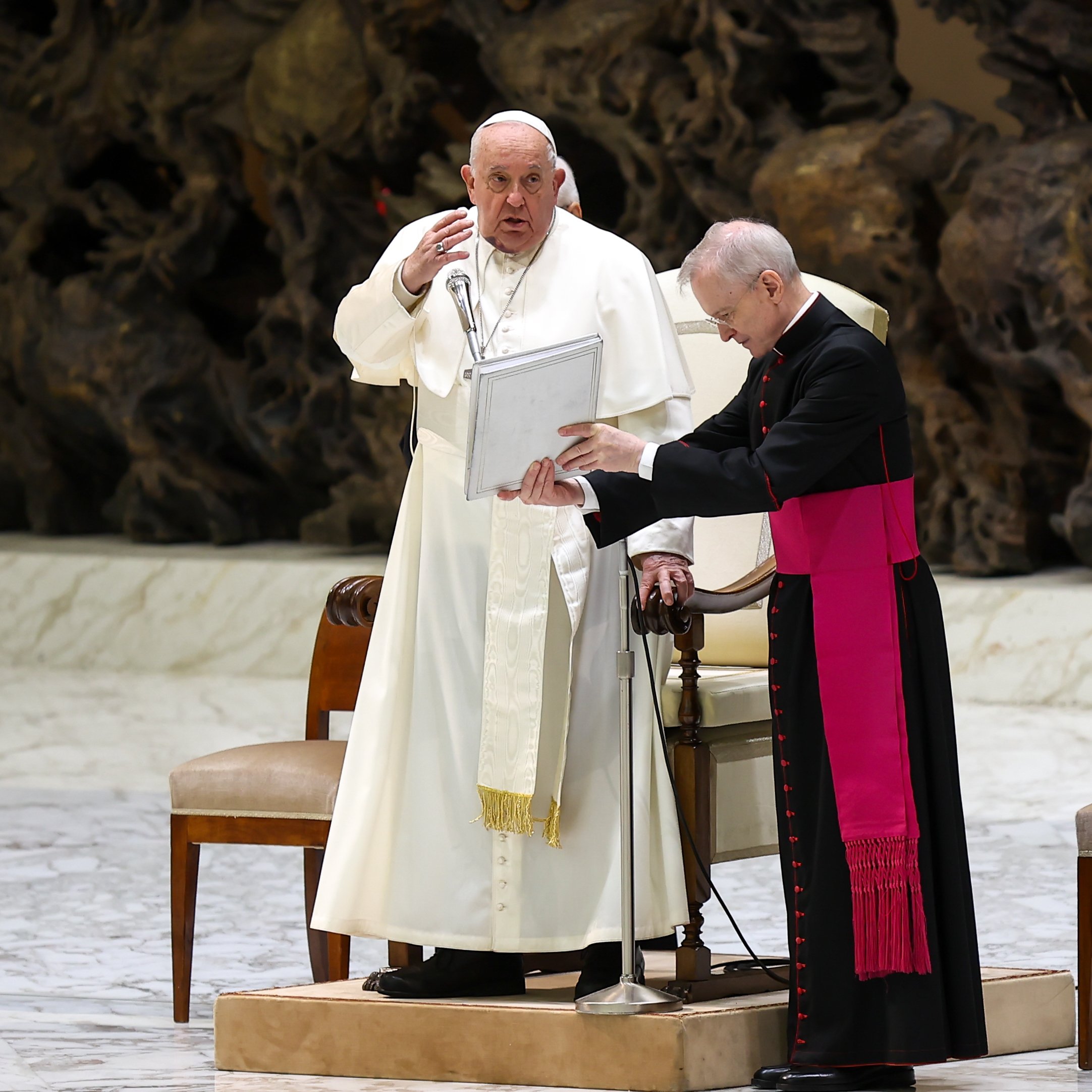BEFORE THE CROSS | Acceptance of God’s mercy requires acknowledging our need for forgiveness
Denying that our actions are sinful is ‘the blasphemy against the Holy Spirit’ mentioned by Christ

Let’s talk about sin that can be forgiven and sin that can’t be forgiven.
This week’s readings focus on David. He’s made king over Israel. He makes Jerusalem his capital city. He brings the ark into Jerusalem. God gives him an eternal covenant. In response, David commits adultery and murder. Then the prophet Nathan pronounces God’s judgment on David’s sin.
David’s story is sobering. It’s an exploration of how deeply human beings sin, even after God gives them every possible gift. In many ways, that’s the story of Israel all through the Old Testament, and the story of every one of us.
David’s story is also deeply consoling, because God forgives him. If even these great sins can be forgiven, there’s hope for all of us! Sin still has consequences, but it doesn’t close the door on David’s relationship with God, or ours.
Jesus, however, gives us a warning. He tells us that there is a sin that can’t be forgiven: the sin against the Holy Spirit. What exactly is this sin, and why is it so much worse than David’s adultery and murder?
St. John Paul II explained it this way: “In Jesus Christ, God bends down over man to hold out a hand to him, to raise him up … Man cannot get back onto his feet unaided: He needs the help of the Holy Spirit. If he refuses this help, he commits what Christ called ‘the blasphemy against the Holy Spirit,’ the sin which ‘will not be forgiven.’ Why will it not be forgiven? Because it means there is no desire for pardon. Man refuses the love and mercy of God.”
In other words, the problem isn’t on God’s side of the relationship. From God’s side, every sin can be forgiven. The problem, rather, is on our side of the relationship. God offers mercy; we refuse the offer. There is no cure for that because God won’t force us to love Him.
Would anyone ever really refuse God’s offer of forgiveness?
This is where David comes back into the picture. When the prophet Nathan confronted David with his double sin of adultery and murder, what did David do? He repented. The content and tone of his repentance is beautifully captured in Psalm 51.
When people today are confronted with their sins how do they respond? As often as not the response is not repentance. “Don’t be so judgmental!” “It’s my life, don’t tell me how to live it.” “The Church needs to get with the times.” In short, in one way or another, the response is to deny that there’s any sin at all.
That’s the sin against the Holy Spirit. It’s the refusal to accept God’s offer of forgiveness, because we claim there’s nothing to forgive. The acceptance of God’s mercy carries a price. The price is the painful recognition and admission that we have done wrong and need forgiveness.
God never turns His back on us. But we can turn our backs on Him. That’s the key difference between sin that can be forgiven and sin that can’t.
Let’s talk about sin that can be forgiven and sin that can’t be forgiven. This week’s readings focus on David. He’s made king over Israel. He makes Jerusalem his capital … BEFORE THE CROSS | Acceptance of God’s mercy requires acknowledging our need for forgiveness
Subscribe to Read All St. Louis Review Stories
All readers receive 5 stories to read free per month. After that, readers will need to be logged in.
If you are currently receive the St. Louis Review at your home or office, please send your name and address (and subscriber id if you know it) to subscriptions@stlouisreview.com to get your login information.
If you are not currently a subscriber to the St. Louis Review, please contact subscriptions@stlouisreview.com for information on how to subscribe.






